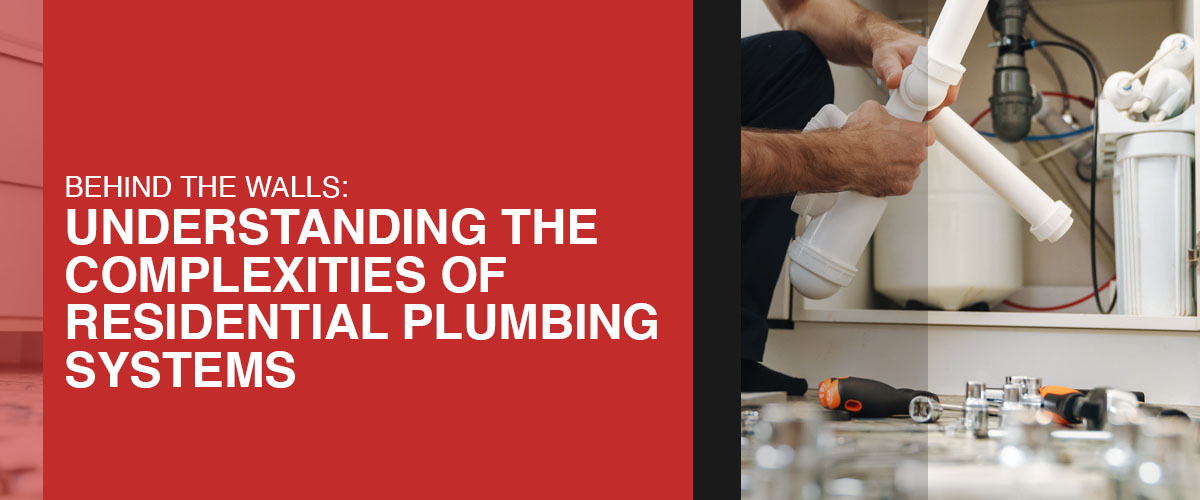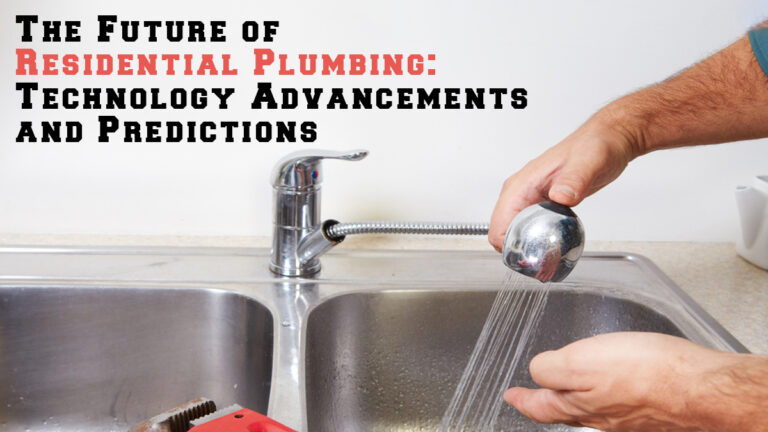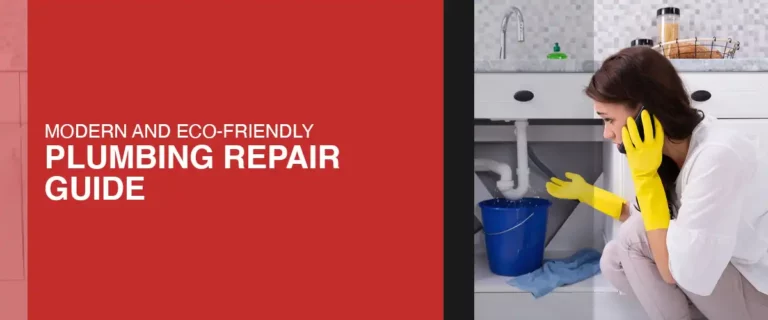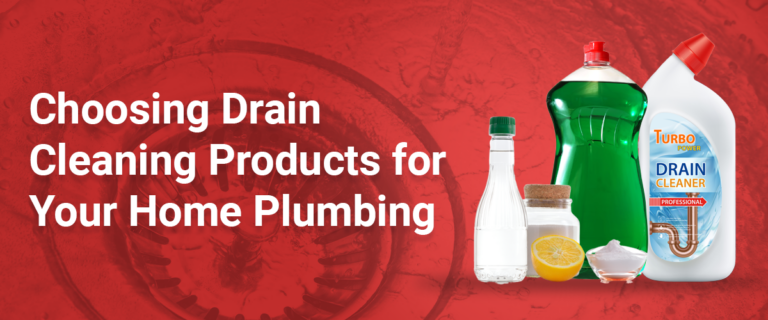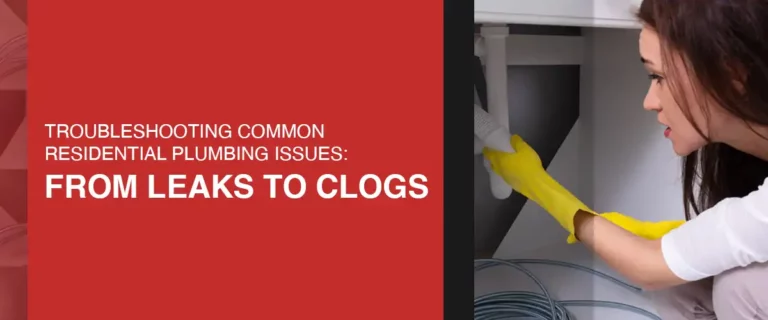Behind the Walls: Understanding the Complexities of Residential Plumbing Systems
Did you ponder the complexity racing beneath your feet every time you turn on a tap? The intricate network of pipes, pressure systems, and waterways hidden beneath the surface of our homes is an invisible metropolis, and it’s time we brought this city to light. Welcome to the fascinating world of residential plumbing systems – the unsung heroes of our everyday comforts.
Unseen but ever-present, this complex maze serves as the main artery of modern living, quietly ensuring our safety and convenience around the clock. The system balances numerous tasks, from providing a refreshing shower to disposing of waste safely and efficiently. This coordinated work results in the seamless contemporary living experience we often overlook.
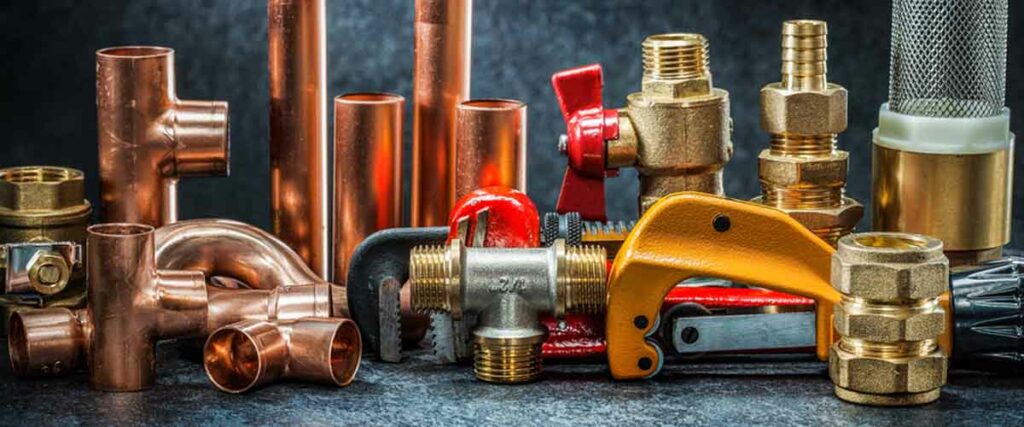
Components of Residential Plumbing Systems
When looking at residential plumbing systems, one can quickly appreciate various components’ complex yet highly efficient interplay. Every detail, from the transmission of fresh water via supply lines to the provision of accessible use points through fixtures, is crucial for smooth operation. Separate from these supply systems, you’ll find drainage pipes that dispose of used water into the sewage system, along with vent pipes that facilitate proper air balance and ensure optimal drainage.
These components and their dependencies underline the concerted coordination that goes on right under our noses. The water supply lines lay hidden behind walls, underneath floors, and on the exterior of our homes, diligently supplying clean, potable water to various rooms.
Fixtures such as:
- Faucets
- Showerheads and
- Washing machines
Bridge the gap between practicality and design, offering more than mere functionality. Meanwhile, drain and vent pipes work quietly in the background to keep things running efficiently and hygienically.
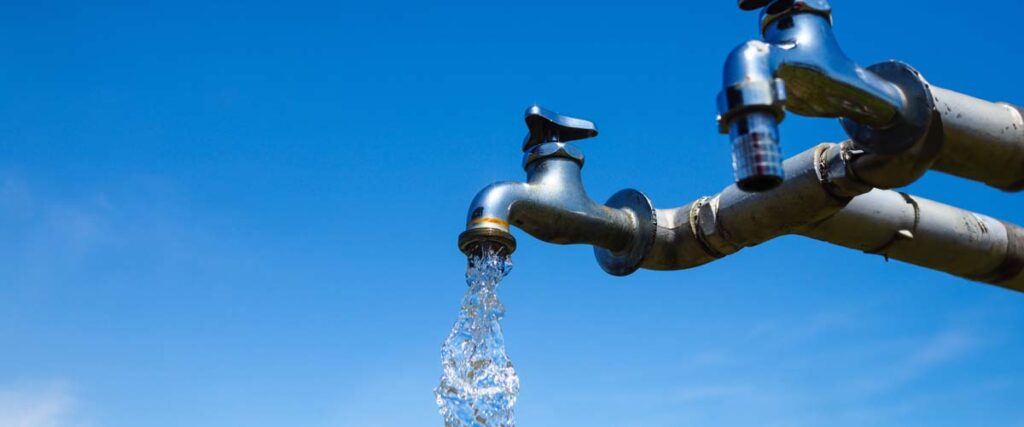
Water Supply and Distribution
The lifeblood of a smooth residential plumbing system is water delivery from a source to the tap. For water to reach our homes, it must travel through an extensive array of pipes from a municipal water source or a private well. Regulating this water flow is a critical piece of the puzzle: pressure regulation. This unsung hero ensures a consistent and stable water supply throughout our homes, guaranteeing water whenever and wherever it’s needed.
Once pressure regulation is in place, water courses through a complex system of pipes, sprawling across vast distances within and outside a home. This intricate network includes hard-to-reach basements, attics, and annexed structures. The result? A steady supply of:
- clean potable water to every faucet,
- showerhead, and
- appliance
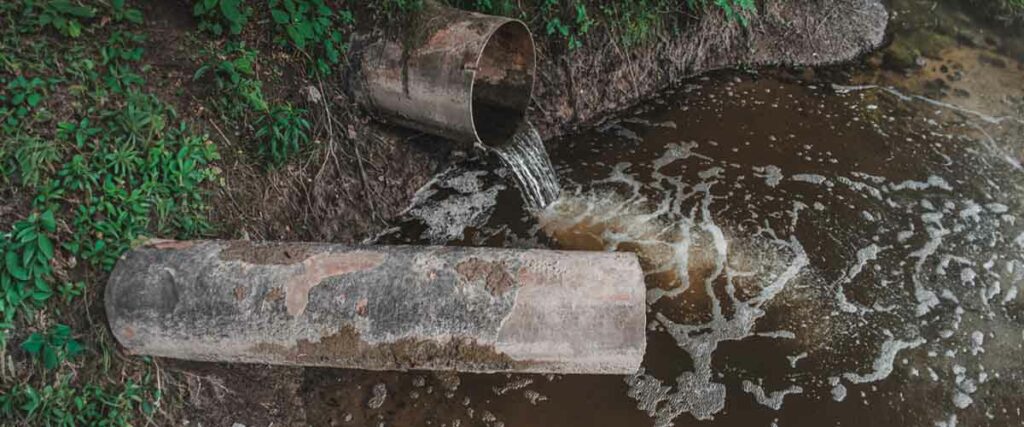
Drainage and Waste Management
While not glamorous, the drainage system is the essential counterpart to any water supply system. Picking up where the supply lines leave off, the drainage system ushers used water away from our homes from:
- Cooking
- Cleaning
- Washing or gardening
- To a few daily activities.
The system, which includes an extensive network of traps, vents, and drains, guarantees optimal drainage. These elements work harmoniously to create a highly efficient disposal process.
The final destination for used water is either the city’s sewer system or a septic tank. Here, the wastewater is treated or disposed of securely, helping maintain our homes’ cleanliness and hygiene. This critical aspect of the plumbing process ensures that water resources are recycled, contributing to a sustainable approach to water usage.

Common Plumbing Issues in Residential Systems
No system is immune to occasional complications, no matter how ingeniously designed. In residential plumbing, some of the most common issues homeowners face are the following:
1. Leaks
If addressed, it can gradually erode pipes, leading to a costly fix further down the road.
2. Clogs
Seemingly harmless at first, it can escalate quickly, resulting in slow-draining sinks or problematic toilets.
3. Water pressure
Issues may seem annoying, but they sometimes indicate more severe problems along the supply line.
Although seemingly minor and commonplace, these problems can become full-fledged disasters if left untreated. Swift detection and repair are invaluable to prevent outcomes like extensive water damage, flooding, or even complete system failures. Addressing these issues will help to stave off catastrophic consequences and keep the residential plumbing system running smoothly.
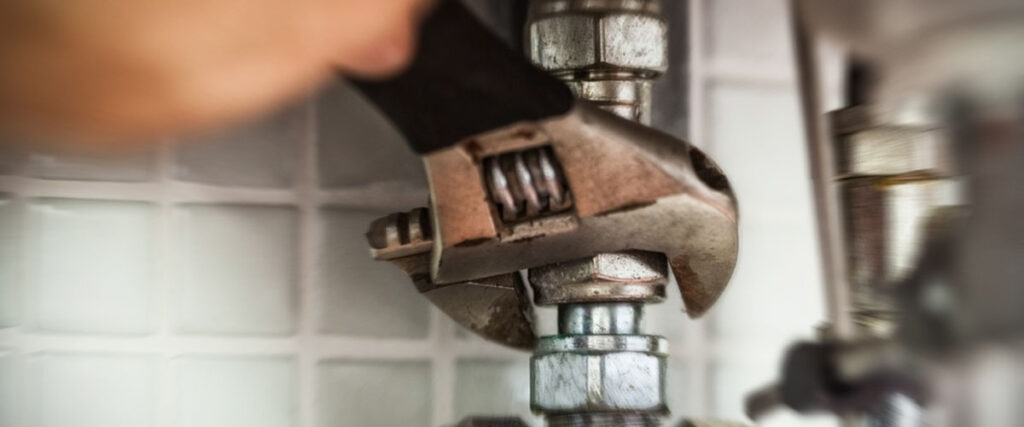
Maintenance and Care
Taking care of your home’s plumbing system entails more than fixing issues as they arise. Regular inspections and cleanups are vital in maintaining prime pipe condition while staying ahead of potential problems. A thorough examination of your system, from water supply to drainage, can help to identify concealed issues that could snowball into major repairs if left unchecked.
However, homeowners often find scheduling professional inspections and maintenance the most effective method. The wealth of experience and far-reaching knowledge of a residential plumbing service ensures it assesses all aspects of your plumbing system, providing you with the ultimate peace of mind. With the help of these experts, no stone—or pipe—will be left unturned.
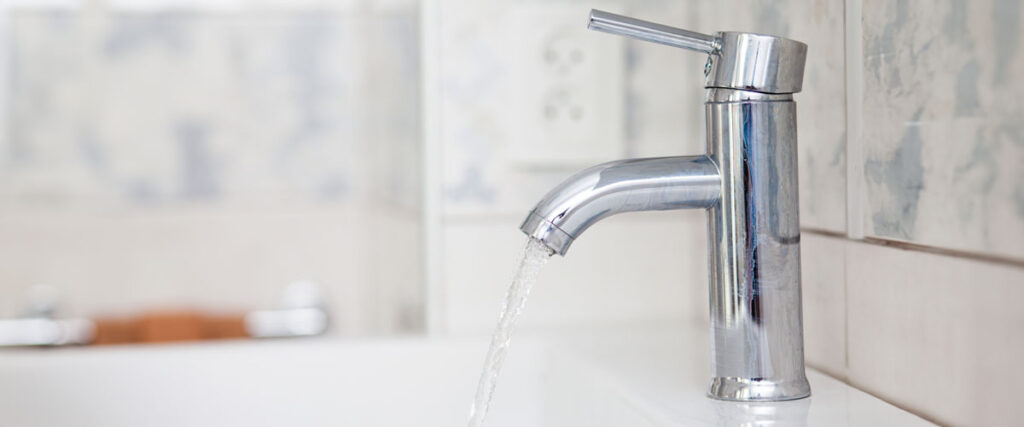
Sustainable Plumbing Practices
The world’s ever-growing emphasis on sustainability has also made its mark on residential plumbing practices. From low-flow fixtures that reduce water consumption to systems that recycle grey water for irrigation, homeowners can adopt a greener approach by upgrading their plumbing systems. Moreover, energy-efficient water heaters can mitigate utility costs and your home’s environmental footprint.
Embracing sustainable plumbing practices today can have positive ramifications that last for generations. While protecting precious resources in the present, these eco-friendly choices also pave a greener path for our future ecological endeavors.
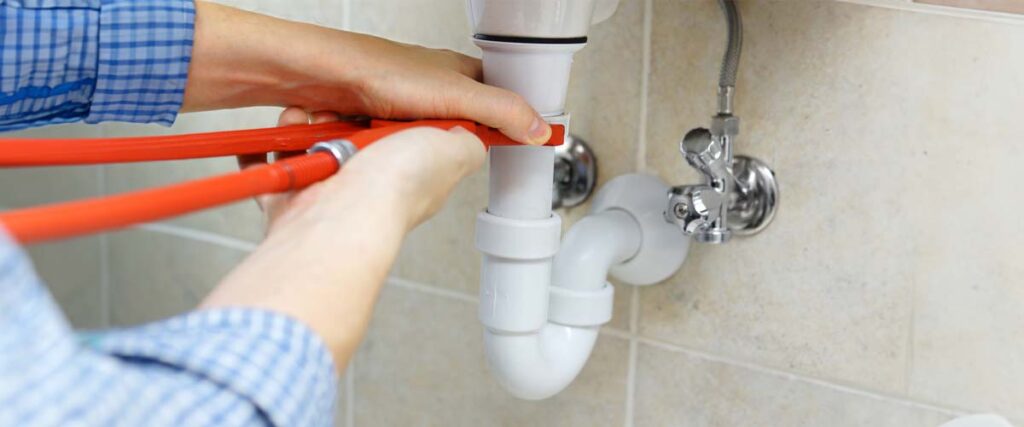
DIY vs. Professional Plumbing Services
The availability of many DIY resources may tempt homeowners to address minor plumbing issues independently. While this is possible in some cases, like changing a tap or unclogging a drain, it’s essential to recognize that more complicated tasks often demand the expertise of professional residential plumbing services in Alabama.
When dealing with intricate installations, repairs, and sewage lines, calling in the pros can help protect your plumbing system’s longevity and integrity and keep you and your family safe.
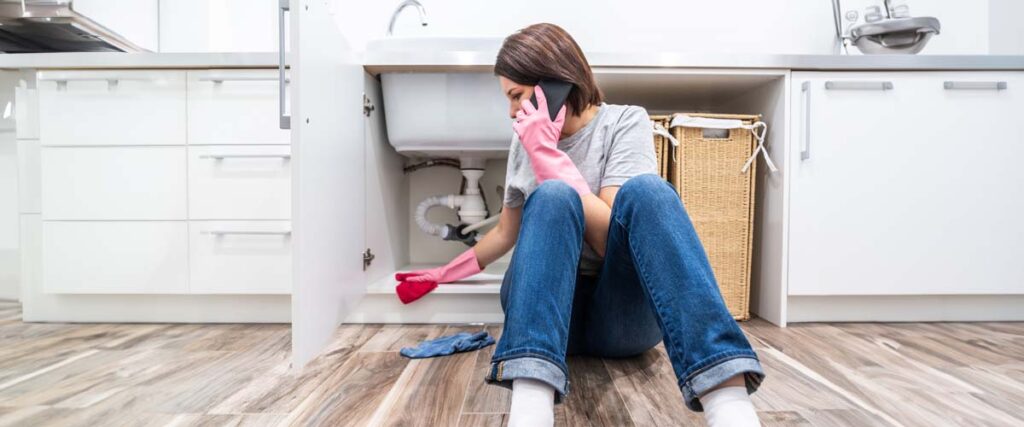
Plumbing: Are You Doing Your Part?
Residential plumbing is an unacknowledged marvel that interlaces convenience with essential services. It’s a network that deserves both our acknowledgment and preset time. By maintaining, inspecting, and upgrading when necessary, we secure a comfortable living for ourselves and contribute to a sustainable world.
So, the next time you open a tap, experience a warm shower, or observe harmless waste disposal – take a moment to appreciate the complex system at work. You’re not merely a user but a crucial component of this intricate network. With that in mind, will you uphold your role in preserving your residential plumbing system’s harmony, efficiency, and integrity?
References:
- ASPE – American Society of Plumbing Engineers. (2023, June 15). ASPE. https://www.aspe.org/
- IAPMO. (n.d.). https://www.iapmo.org/
- Plumbing Foundation – Plumbing Foundation City of New York. (n.d.). https://www.plumbingfoundation.nyc/

